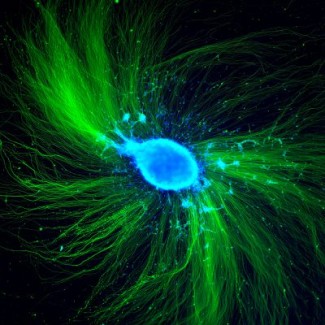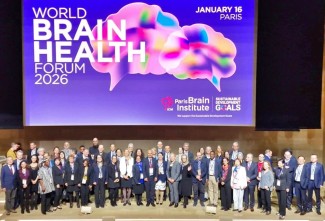An international study published in Brain, Behavior, and Immunity shows that patients with treatment-resistant depression (TRD) have a unique biology, different from those who respond to standard therapies. More than 5,000 genes were found to behave differently in TRD compared with non-resistant patients. The study reports the first results of the PROMPT consortium, which aims to combine clinical and molecular data using machine learning to predict which patients are at risk of developing TRD
A study led by the Hospital del Mar Research Institute, the University of Brescia, and Paris Brain Institute, with the collaboration of partners in the PROMPT consortium coordinated by the University of Münster, provides evidence that treatment-resistant depression (TRD) is not just a more severe form of major depression, but a biologically distinct condition.
TRD is a severe condition characterized by chronic and recurring depressive symptoms that often do not improve after several treatment attempts. To understand why some patients respond to antidepressants and others don't, researchers analyzed blood from 300 patients with major depressive disorder and discovered that more than 5,000 genes behave differently in TRD compared with non-resistant patients.
Many of these genes are linked to the immune system, regulation of gene activity, and neuroplasticity, all key to the biology of depression. The fact that around 20% of active genes, including many key to depression pathophysiology, behave differently, points to TRD having its own underlying biology.
Most standard antidepressants are known to modulate immune factors. The reduced immune response observed in TRD patients suggests that this could be the reason why these pharmacological treatments often fail in these patients. “Recognizing this can guide the development of new, more targeted therapies,” adds Alessandra Minelli, psychologist and associate professor at the University of Brescia.
A step closer to precision psychiatry
This study reports the first results of the PROMPT consortium—funded by the European ERA PerMed scheme—which aims to build machine-learning models to predict patients at risk of developing TRD.
“These results open the door to a new molecular understanding of depression and give us the opportunity to rethink how we classify and treat patients,” notes Júlia Perera Bel, from the Biomedical Informatics Research Programme (GRIB) of the Hospital del Mar Research Institute.
“We are now studying other biological entities, such as small RNA molecules and genetic mutations, to have a comprehensive molecular characterization of these patients,” adds Anna Sirés, first author of the study and also researcher at GRIB. “By combining the findings from multiple molecular layers, we expect to capture the biological complexity and multifactorial nature of the disease.”
PROMPT is a proof-of-concept study that can lay the groundwork for molecular testing and machine learning algorithms in psychiatric diseases. “This study is a step towards precision psychiatry, where algorithms could help decide the best treatment for each patient and avoid unnecessary treatments,” remarks Pr. Bernhard Baune, coordinator of the PROMPT consortium from the University of Münster.
Reference
Sirés, A., et al. Blood transcriptomic analysis reveals a distinct molecular subtype of treatment-resistant depression compared to non-treatment resistant depression. Brain, Behavior, and Immunity. Octobre 2025. DOI: 10.1016/j.bbi.2025.106103.
Funding
This study was funded by the German Federal Ministry of Health (BMG), the National Center for Research and Development of Poland (NCBR), the Italian Ministry of Health (IT-MoH), the French National Research Agency (ANR) and the Investissements d'Avenir program, the Department of Health of the Generalitat of Catalonia (DS-CAT), and the Carlos III Health Institute (ISCIII) as part of the European ERA PerMed program.

The team is interested in the molecular mechanisms involved in the initiation and progression of Alzheimer’s disease and prion diseases.
Read more
Depression
Mental health, an essential component of our overall health, is a state of well-being, and an ability of the mind to function normally and respond appropriately to environmental stimuli. Mental disorders occur when this state of well-being is...
Read more






